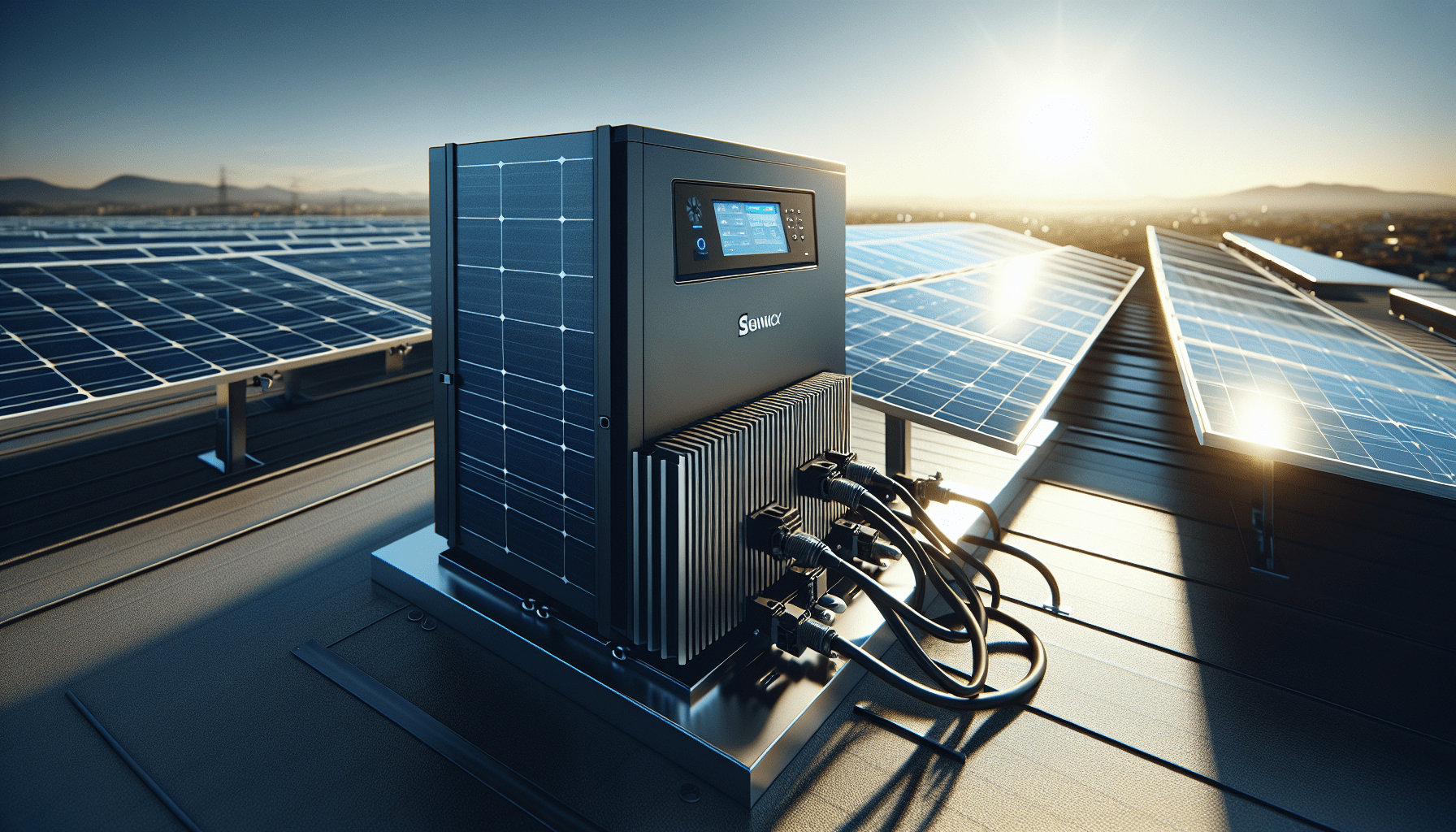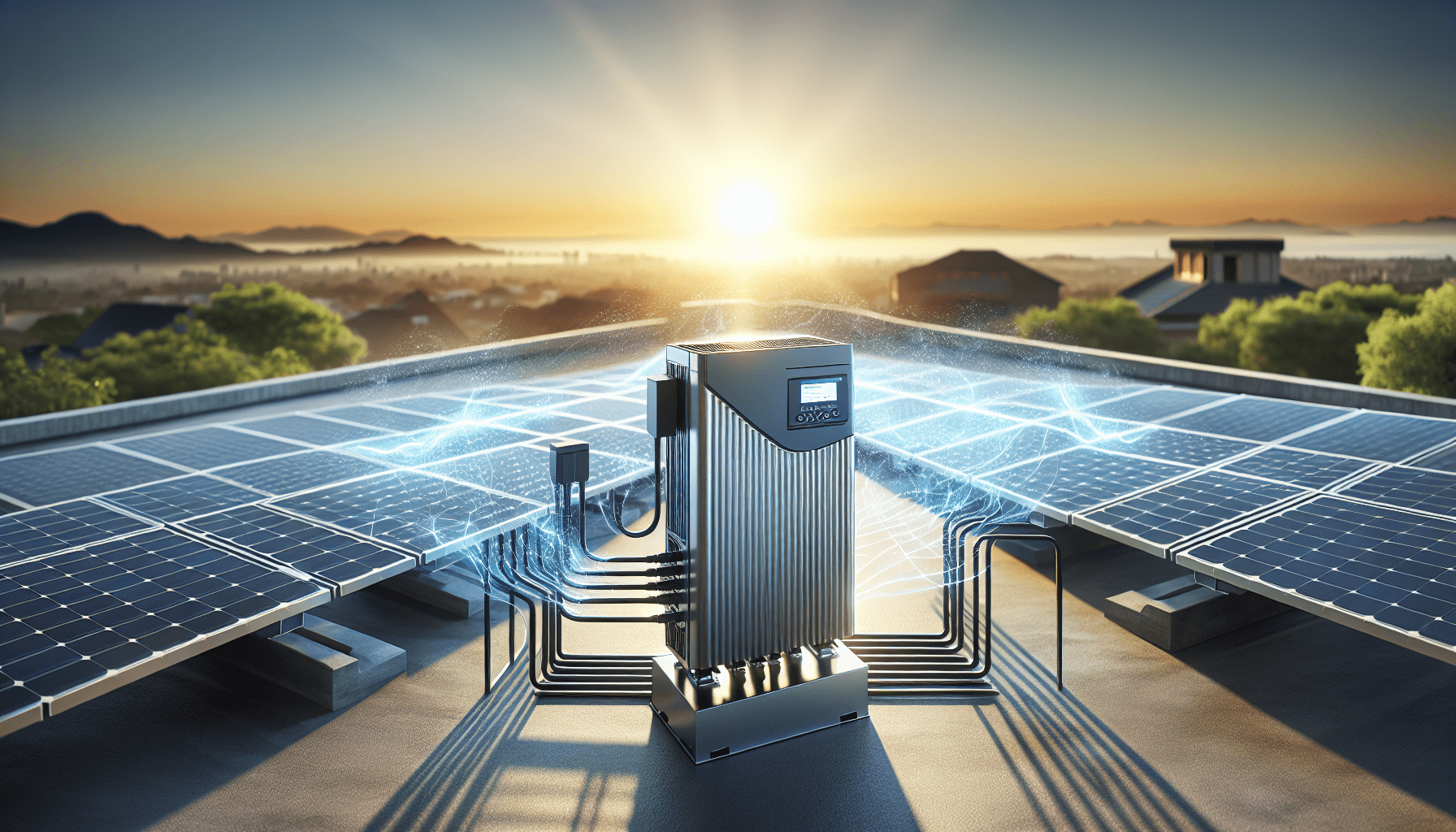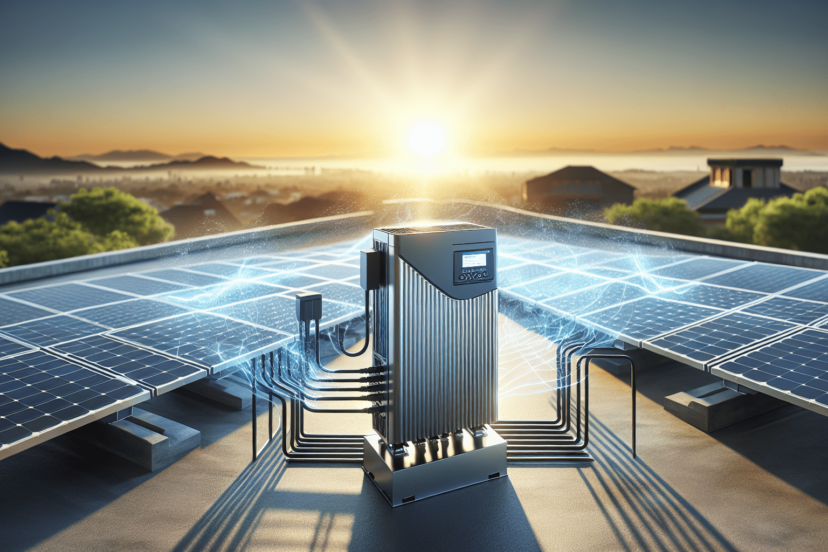Efficient Solar Power Inverter Solutions for Home Use
As an Amazon Associate, I earn from qualifying purchases, at no additional cost to you. Disclaimer
Have you ever wondered how to make the most out of solar energy for your home’s power needs? With the growing popularity of sustainable energy sources, more homeowners are turning to solar power as an efficient way to reduce their carbon footprint and energy bills. One crucial component of a solar power system is the inverter, which plays a significant role in converting the energy collected by your solar panels into usable electricity for your home.

Click Here to Go Solar and Save
Understanding Solar Power Inverters
Before delving into the types of solar power inverters suitable for home use, it’s important to understand what a solar inverter does. A solar inverter is a device that converts the direct current (DC) electricity generated by your solar panels into alternating current (AC) electricity. AC is the type of electricity used by most household appliances, making the inverter an essential piece of your solar energy system.
Why You Need a Solar Power Inverter
You might be curious, why can’t solar panels alone power your home? While solar panels are excellent at capturing sunlight and generating electricity, the type of electricity they produce is not directly usable by your home’s electrical system or appliances. This is where solar power inverters come into play, bridging the gap between the solar panels and your home’s electrical system.
Types of Solar Power Inverters
Choosing the right type of solar power inverter for your home can significantly impact the efficiency and reliability of your solar energy system. Here’s a closer look at the different types of inverters available:
String Inverters
String inverters are one of the most common types of inverters used in residential solar installations. In a string inverter setup, multiple solar panels are connected in series, forming a ‘string’, which is then connected to a single inverter.
- Advantages: String inverters are cost-effective and relatively easy to install. They work well for solar installations with similar panel orientations and minimal shading.
- Disadvantages: The performance of the entire string can be affected if one panel is shaded or dirty, which can reduce the overall efficiency.
Microinverters
Microinverters are a newer technology that fixes some of the limitations of string inverters. Instead of one central inverter, each solar panel is fitted with its own microinverter.
- Advantages: They offer better performance under shaded conditions and allow for more flexible panel installation. The output of each panel is optimized individually, which can lead to higher efficiency.
- Disadvantages: They can be more expensive than string inverters due to the need for multiple units.
Power Optimizers
Power optimizers are used in conjunction with a central inverter. Installed at the panel level, they adjust the DC electricity from each panel before sending it to a single inverter.
- Advantages: They combine the individual optimization benefits of microinverters with the cost-effectiveness of string inverters. They handle shading and orientation differences better.
- Disadvantages: While more affordable than microinverters, they still represent an additional cost compared to string inverters alone.
Hybrid Inverters
Hybrid inverters, also known as battery-ready inverters, offer the added capability of battery storage integration. This means you can store excess solar energy for use when the sun isn’t shining.
- Advantages: They offer versatility and future-proofing for homeowners interested in battery storage. Ideal for homes aiming for off-grid capabilities.
- Disadvantages: Typically more expensive due to their enhanced functionality.
Click Here to Power Your Home with Solar
Factors to Consider When Choosing a Solar Power Inverter
Now that you understand the different types of inverters, several important factors should guide your choice:
Power Rating
The power rating of the inverter should match your energy needs and the capacity of your solar panels. It’s essential to ensure the inverter can handle the power output from your panels to prevent energy bottlenecks.
Efficiency
Inverter efficiency can directly affect how much of the solar energy you can use in your home. Choose an inverter with a high efficiency rating to maximize the energy conversion and benefit more from your solar system.
System Compatibility
Ensure that the inverter is compatible with your specific solar panel system. Not all inverters are universally compatible, and improper pairing can lead to system inefficiencies or failures.
Cost
While important, cost shouldn’t be the sole deciding factor. Consider the long-term savings and benefits each inverter type offers, alongside its initial investment.
Warranty and Support
A good warranty and technical support can be invaluable, providing peace of mind and security for many years. Inverters can have warranties ranging from 5 to 25 years; a longer warranty usually reflects a more durable and high-quality inverter.
Installing and Maintaining Your Solar Power Inverter
Understanding installation and maintenance helps you manage and get the most out of your investment in a solar power inverter.
Professional Installation
It’s highly recommended to have your solar power inverter installed by a certified professional. They will ensure that the installation adheres to local codes and manufacturer guidelines, optimizing both safety and efficiency.
Routine Maintenance
Regular maintenance checks can extend the lifespan of your inverter and the overall solar power system. Keep the unit clean and free from dust and debris, and ensure that no electrical connections are loose or damaged.
Monitoring System Performance
Many modern inverters come with monitoring systems, allowing you to track performance in real-time. Monitoring can be done through web portals or smartphone apps, providing alerts for potential issues and performance data for optimizing your usage.

Click Here to Discover Solar-Powered Solutions
Benefits of Using Solar Power Inverters for Home Use
Now that you have a robust understanding of solar power inverters, let’s explore the benefits they bring to your home:
Environmental Impact
By utilizing solar power inverters, you’re contributing to the reduction of greenhouse gas emissions. Harnessing the clean, renewable energy of the sun reduces reliance on fossil fuels, promoting a healthier environment.
Energy Independence
Solar power systems paired with efficient inverters can provide significant energy independence. You’re less reliant on the grid, which not only gives you peace of mind during power outages but also shields you from fluctuating energy prices.
Cost Savings
While the initial investment may be substantial, solar power systems can lead to long-term savings on your energy bills. Many homeowners see a return on investment within a few years, especially in sunny regions with high electricity prices.
Increased Home Value
Homes with solar power systems are often more attractive to buyers. A well-installed system featuring a reliable inverter can boost your property’s market value, making it an appealing feature for future residents.
Conclusion
Understanding the essentials of solar power inverters is crucial for anyone looking to harness solar energy effectively for their home. By choosing the right inverter type and considering factors like power rating, efficiency, and system compatibility, you can optimize your solar energy system for maximum benefit. With the added perks of reduced energy costs, environmental sustainability, and increased property value, investing in solar power inverters becomes a compelling choice for the conscientious homeowner. So, as you contemplate powering your home sustainably, remember that the ideal solar power inverter solutions can turn that dream into a reality.

